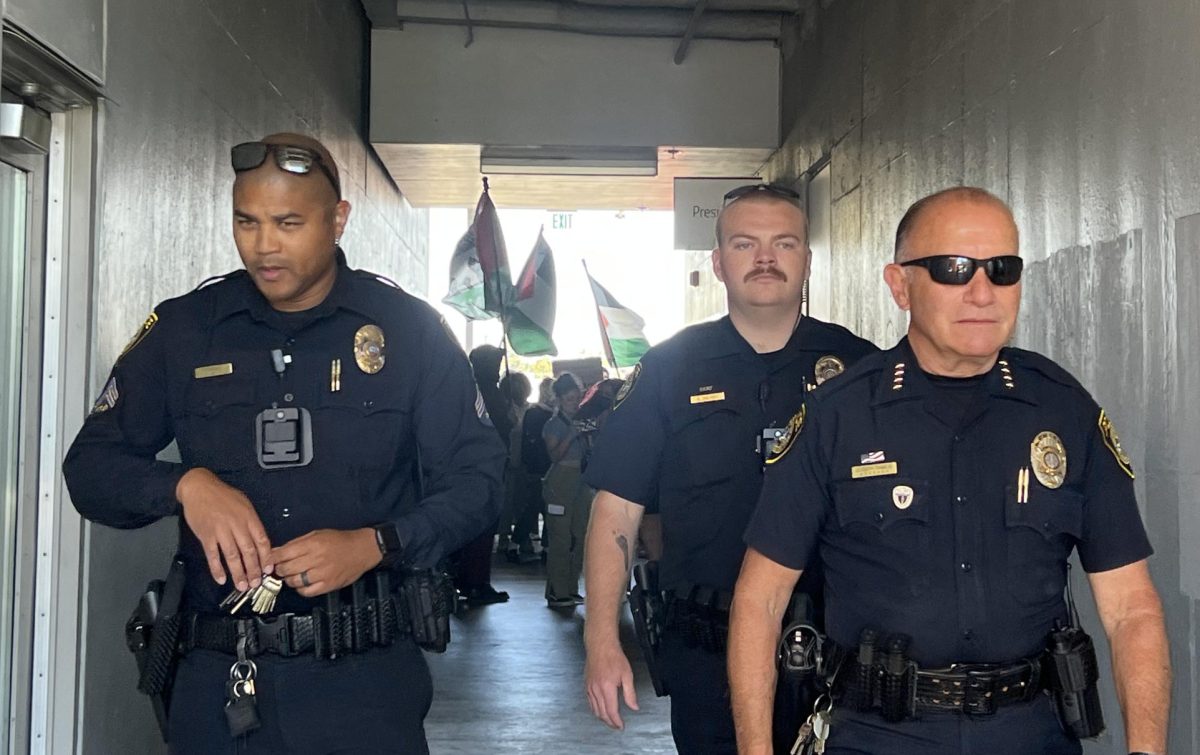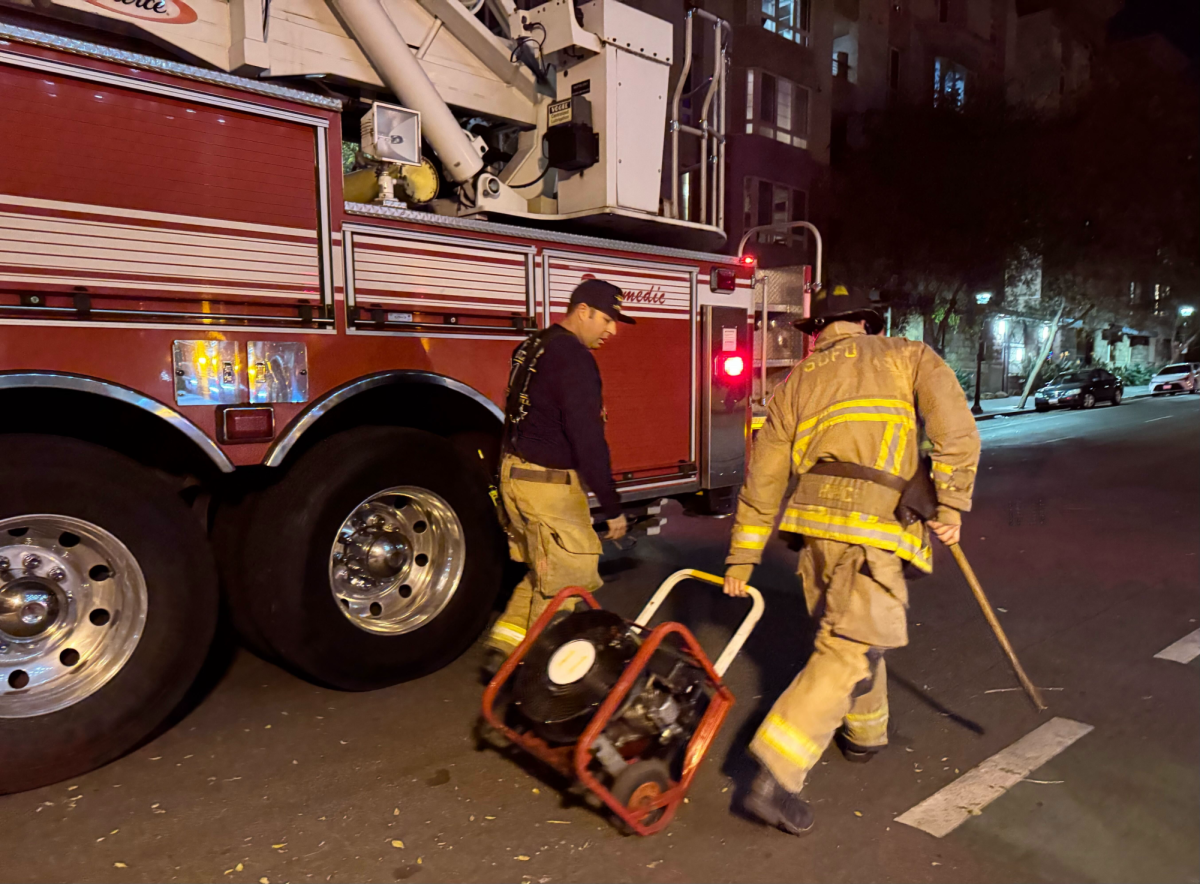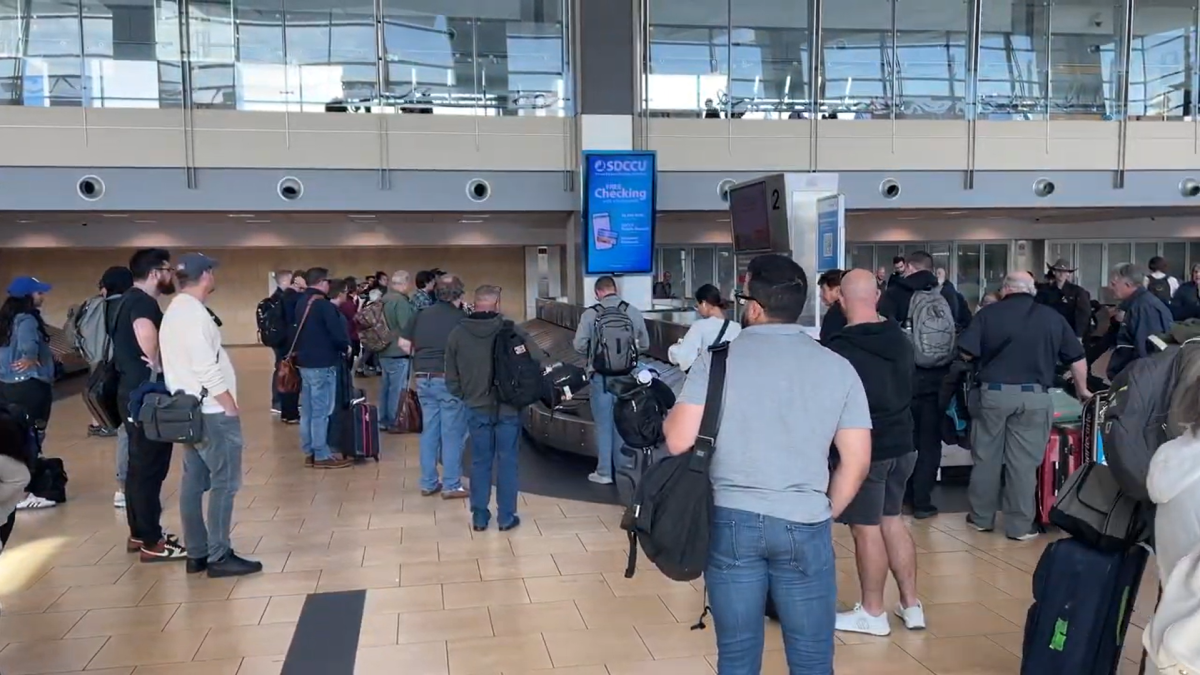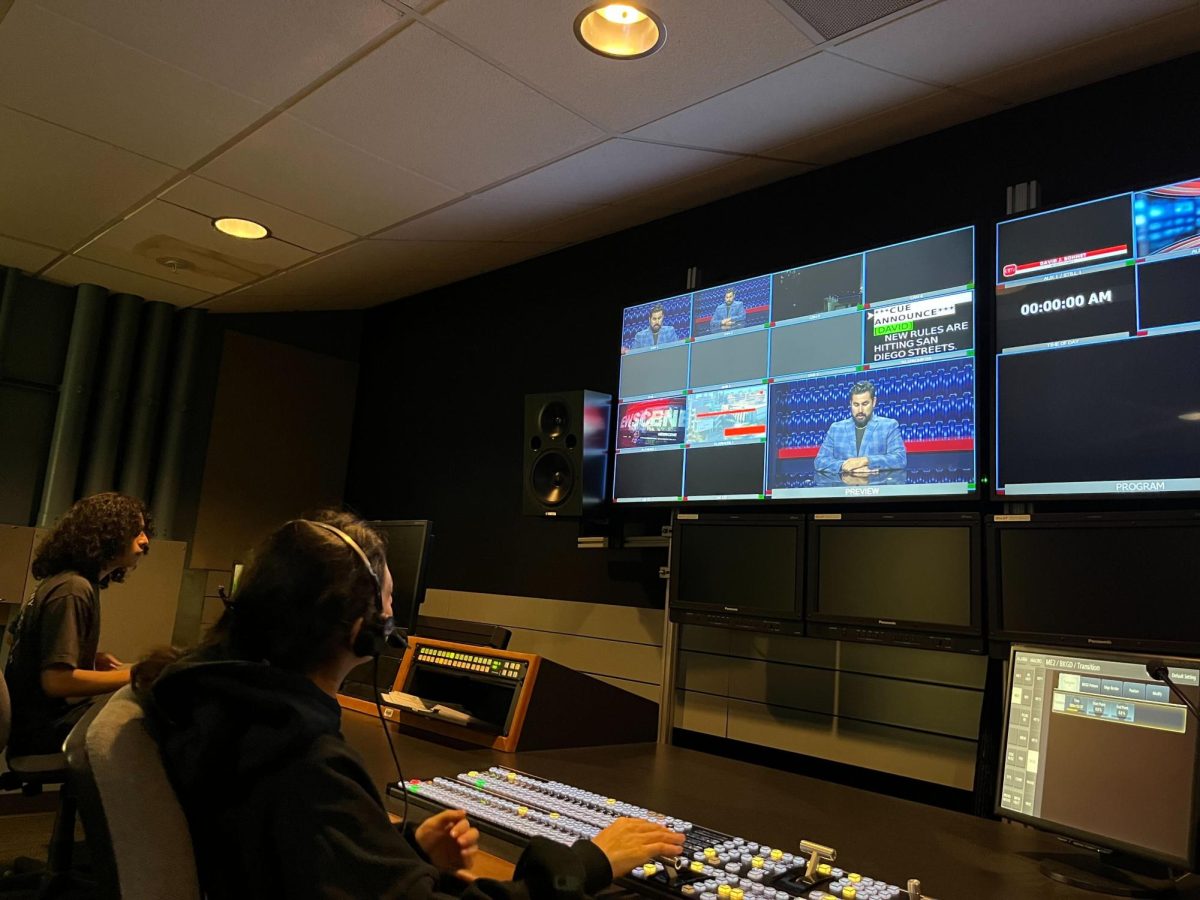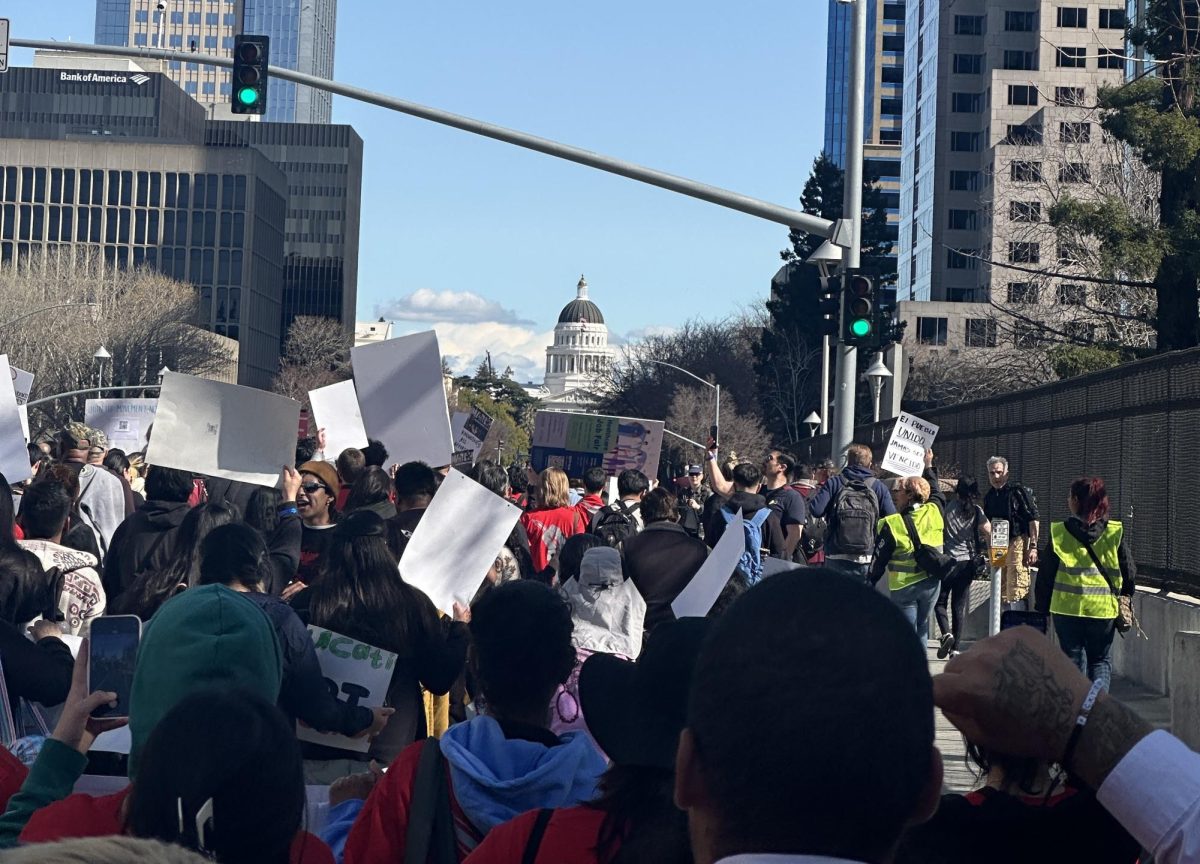Several hundred City College students, faculty and staff felt strongly enough about cuts to education to host two separate budget cuts protests on Oct. 7, which flyers across campus called “a national day of action.”
The event in Gorton Quad was organized by Education for All, or EFA, a group that, according to its website, is “working to mobilize a mass community response to the economic crisis.” Members of Bringing Education and Activism Together, or BEAT, held their rally in Curran Plaza.
BEAT’s event drew about 100 people to the west end of the plaza, where organizers had set up a coffin and several tombstones with cemetery-style slogans such as “Here lies DSPS” and “RIP public education.”
“We wanted it to be a very strong visual,” explained Jessica Magpie, a BEAT member who helped set up the display. She said the graves signified programs and services which have been lost to “extreme budget cuts.”
“I’m just here to be solemn,” said J.D. Ruiz, a student who was one of more than a dozen people wearing black clothing.
Professor Larissa Dorman asked attendees to share personal testimonies of how cuts to education have impacted their lives. A student in a wheelchair said he now received less assistance from Disabled Students Programs and Services, or DSPS. Others mentioned higher fees, limited availability of classes and new hurdles in the transfer process.
Just as BEAT’s event finished, Education for All got started with their program. In speeches, live music, and spoken word performances, students shared their feelings about cuts to educational funding.
Yasmin Rahman told the crowd that she’s been a student at City College for four years, “only because I haven’t been able to transfer.”
She said her plan is to earn a degree in digital music production at San Diego State University, but “they’re not taking music majors.”
Other students questioned why politicians are reluctant to insist on more funding for education. “Tax the rich — for a start,” said a hand-lettered sign hung in a cafeteria window.
Norissa Gastelum said she owes $30,000 she borrowed to attend UC San Diego, where she earned a bachelors in cultural anthropology.
“There is a crisis of priorities, not a budget crisis,” said Gastelum, who is currently attending City College and — like several speakers of the conference — believes higher education in the United States should be free to students, as in many other developed countries.
Wayne Scherer, a member of Education for All, said the rally in Gorton Quad was planned in coordination with similar events at SDSU and UCSD, and was endorsed by activist groups such as Food Not Bombs and the San Diego Coalition for Peace and Justice.
“The main thing is raising public consciousness (and) connecting people with the reality of the issues,” Scherer said. “That happens through actions like this.”
“Have to rebel when this s*** is unfair / Keep on fighting because we almost there,” rapped Karim Assaf, a student who performs as Karim.
Pearl Ayom, a former City College student who now attends Southwestern, sang a pair of songs, including one with the seemingly cautionary refrain, “Here today / gone tomorrow.”
At BEAT’s rally, Maurice Martin said he relies on several programs that have been scaled back.
Martin, a veteran student with a disability, said his weekly access to tutors has been reduced from four hours to 30 minutes and that DSPS can no longer provide him with an audio recorder to use in class. In addition, he said his access to computers has been reduced by cuts to the Learning Resource Center’s hours of operation.
“I’m watching those hours dwindle,” Martin said.
Professor Jim Miller urged people to vote on Nov. 2. He said he believes Propositions 24 and 25 could soften or prevent future funding cuts and that Jerry Brown would be more supportive of education than Brown’s opponent in the race for California Governor.
“If we elect Meg Whitman,” Miller said, “the cuts are going to come hard and fast.”

